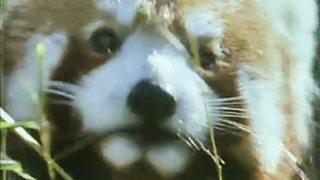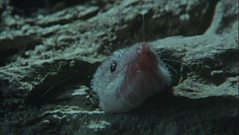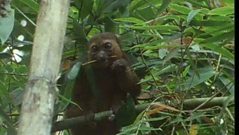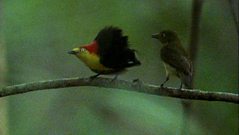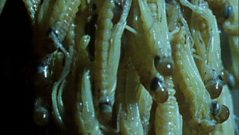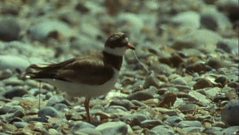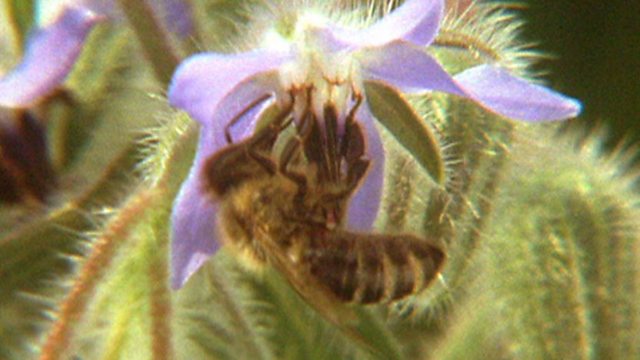
Sweet enticement
In a British poppy field, David Attenborough talks about how co-operative plants bribe insects to pollinate them, supplying pollen and nectar for them to eat in return for their acting as couriers. Bumblebees have a great taste for pollen, gathering it with special combs on their legs and packing it into baskets on their thighs. As they move from flower to flower, some of the pollen that gathers on their hairy bodies brushes off on another flower and the plant's purpose is accomplished. Pollen, packed with genetic matieral, is a complex and expensive commodity and many flowers offer a much cheaper bribe of nothing more than sweetened water, or nectar. Produced in nectaries in the heart of the flower, insects such as honey bees have to brush past the pollen to reach it. In temperate lands, flowers are only produced in spring and summer when there's no frost. So insects that shelter from the winter in nests have to stock up while they can.
Duration:
This clip is from
Featured in...
![]()
大象传媒 Nature
Be captivated, informed and inspired by the world's wildlife.
![]()
Bees are brilliant
A collection of clips illustrating the importance of the honey bee and its recent decline.
More clips from Finding Food
-
![]()
Chemical warfare
Duration: 01:24
-
![]()
Bamboo eaters
Duration: 01:28
More clips from The Trials of Life
-
![]()
Manakin Mating Dance—Courting
Duration: 04:04
-
![]()
Silky siblings—Arriving
Duration: 00:59
-
![]()
Gazelle gavottes—Fighting
Duration: 02:04
-
![]()
Faking it—Talking to Strangers
Duration: 01:28
